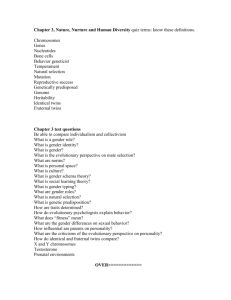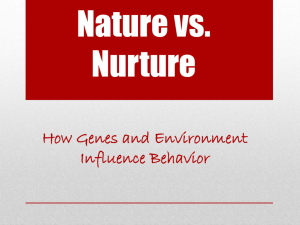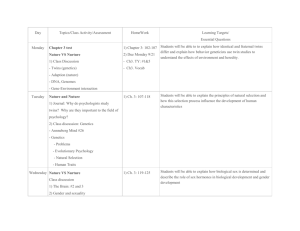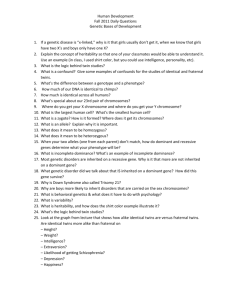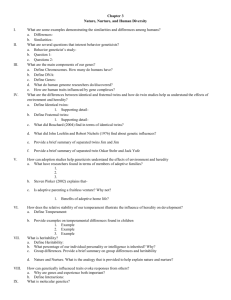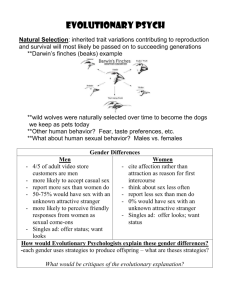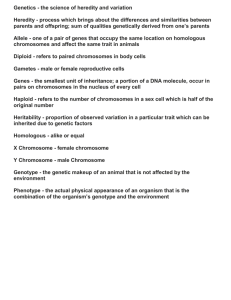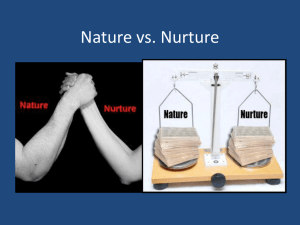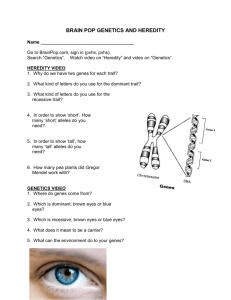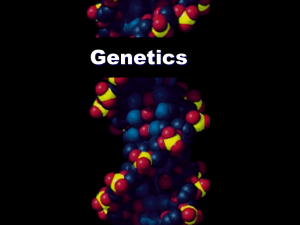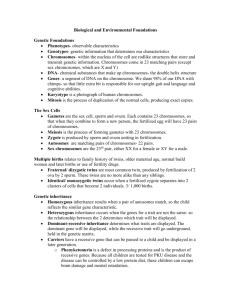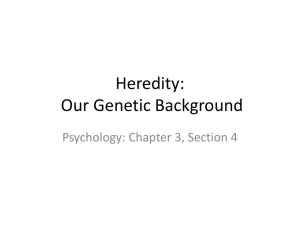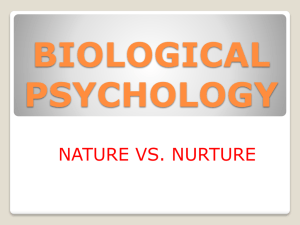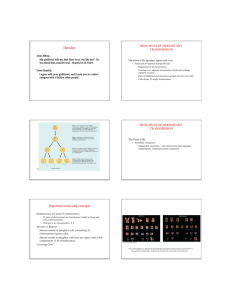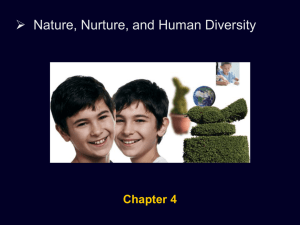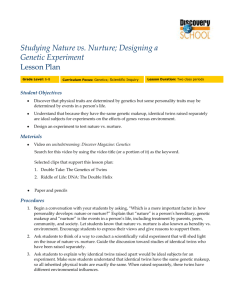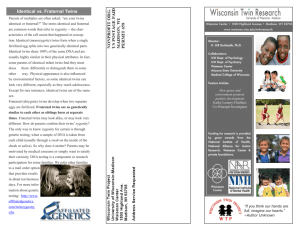Thinking About Psychology: The Science of Mind and Behavior
advertisement
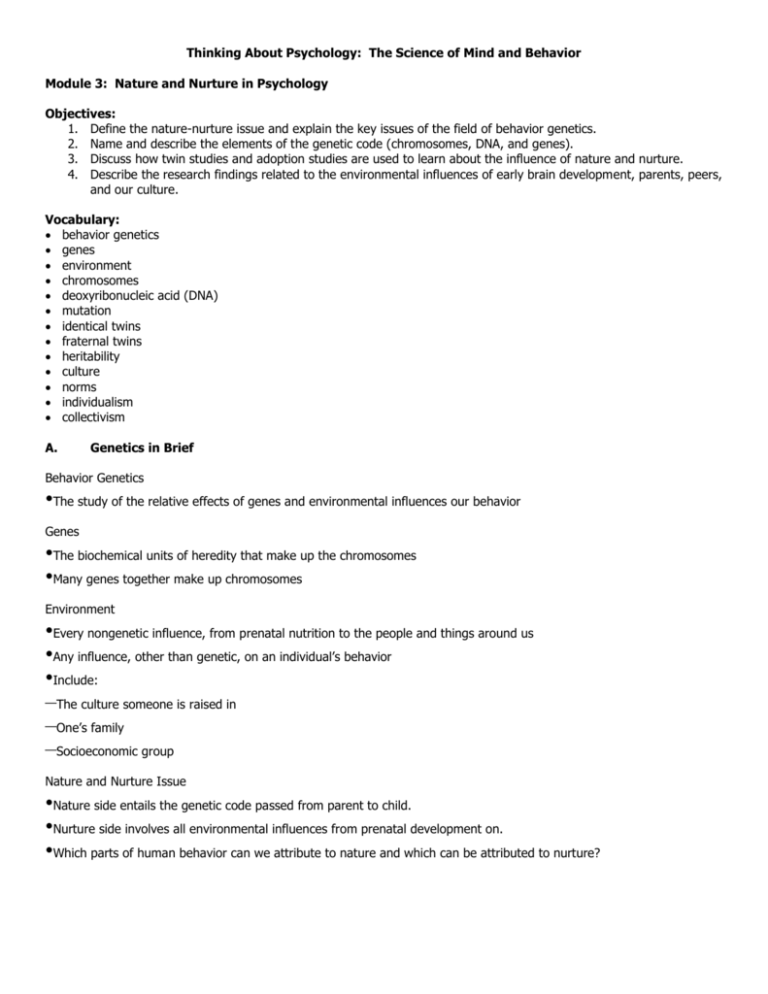
Thinking About Psychology: The Science of Mind and Behavior Module 3: Nature and Nurture in Psychology Objectives: 1. Define the nature-nurture issue and explain the key issues of the field of behavior genetics. 2. Name and describe the elements of the genetic code (chromosomes, DNA, and genes). 3. Discuss how twin studies and adoption studies are used to learn about the influence of nature and nurture. 4. Describe the research findings related to the environmental influences of early brain development, parents, peers, and our culture. Vocabulary: behavior genetics genes environment chromosomes deoxyribonucleic acid (DNA) mutation identical twins fraternal twins heritability culture norms individualism collectivism A. Genetics in Brief Behavior Genetics •The study of the relative effects of genes and environmental influences our behavior Genes •The biochemical units of heredity that make up the chromosomes •Many genes together make up chromosomes Environment •Every nongenetic influence, from prenatal nutrition to the people and things around us •Any influence, other than genetic, on an individual’s behavior •Include: –The culture someone is raised in –One’s family –Socioeconomic group Nature and Nurture Issue •Nature side entails the genetic code passed from parent to child. •Nurture side involves all environmental influences from prenatal development on. •Which parts of human behavior can we attribute to nature and which can be attributed to nurture? Chromosomes •Threadlike structures made up of DNA that contain the genes •46 pairs in each cell •23 received from each parent Deoxyribonucleic Acid (DNA) •A complex molecule containing the genetic information that makes up the chromosomes Nucleotides •The four letter code to distinguish genes •Letters A,T,C, or G are used Mutation •Random errors in gene replication that lead to a change in the individual’s genetic code; •The source of genetic diversity •Can be desirable or undesirable changes Predisposition •The possibility of something happening through the genetic code •Genetics creates the potential for something •The environment may or may not trigger the predisposition B. Nature and Nurture in Psychology Identical Twins •Twins who developed from a single fertilized egg that splits in two, creating two genetically identical organisms •Called monozygotic twins Fraternal Twins •Twins who developed from separate eggs; the are genetically no more similar than other siblings, but they share a fetal environment •Called dizygotic twins Heritability •The degree to which traits are inherited •The proportion of an individual’s characteristics that can be attributed to genetics (heredity) Twin Studies •Used to determine the heritability of a given trait •Data is collected from both identical and fraternal twins on the trait •Compare the data between the two groups •Important not to conclude that a specific behavior is inherited Adoption Studies •Compare adopted children’s traits with those of their biological parents and their adopted parents •Trait similarities with biological parents: attribute the trait to heredity •Trait similarities with the adopted parents: attribute the trait to the environment C. Environment Matters Early Brain Development •Early experience is critical in brain development. •In later life continued use is necessary to maintain neural connections in the brain. Peer Influences •Peer influence in adolescence is very powerful. •Many studies suggest a peer group is correlated with school performance, smoking, and other behaviors. Culture •The shared attitudes, beliefs, norms and behaviors of a group communicated from one generation to the next Norms •Understood rules for accepted and expected behavior •Consist of the “proper behavior” within a group Individualism •Giving priority to one’s goals over the goals of the group, •Defining one’s identity in terms of personal attributes rather than the group’s identification •Tend to see people as separate and independent Collectivism •Giving priority to the goals of one’s group (often the extended family or work group) and defining one’s personal identity accordingly •See people as connected to others •Individual needs are sacrificed for the good of the group.
